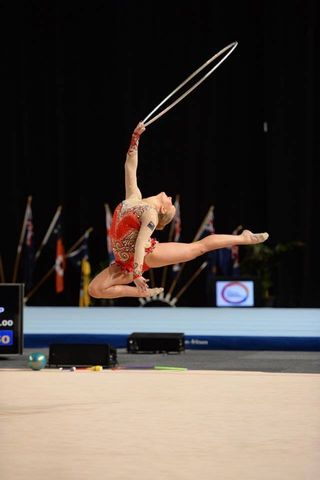It is a commonly held belief that in order to be successful in an activity as competitive as sport, one would have to be focused on winning and ‘want it more’ than their competitors. Clearly, motivation plays an important role in success; with that said, however, I would argue that just like in any other environment, to perform optimally in sport, one would have to be engaged in the process… or become lost in the dance.
To me, getting lost in the dance is about being fully engaged in whatever it is that we are currently doing. To articulate messages clearly when speaking in public or be in a relaxed mood on a first date, we need to be engaged and enjoying each moment. When our thoughts start to drift and we begin questioning the interest of the audience or attentiveness of our lovely date, we begin to become distracted from the moment itself.

We experience the same challenge when competing in sport. As we enter a competition, we are generally confronted with a fairly unpredictable environment that involves many potential distractions. To perform optimally (opposed to being focused on just winning or losing), one needs to be focused on the task at hand as that is the only controllable element. If an athlete is driven to achieve great results, but has the ability to park that thought, and be engaged in their own performance, then they are more likely to have a mindset that has a balance of being excited and calm, opposed to being anxious and overly active.
As mentioned, sport provides a noisy and unpredictable environment that can create significant challenges in regard to staying in ‘the moment’. Below are some tips for helping athletes maintain their focus on the present moment.
Focus on the process
The only way to achieve ‘the zone’ that many of us pursue like a holy grail, is to focus on the journey or the moments as they pass. When we focus on winning, losing, expectations, proving adequacy, or alternatively avoiding inadequacy, we risk becoming anxious and focused on matters other than the task at hand. Being mindful of the present moment will increase the likelihood of your athletes moving into a flow state and performing optimally, when it matters most. Identify process-based aspects of performance that your athletes can focus on to ensure, as much as possible, attention is maintained on the process.
Enjoy what you’re doing
When we (coaches and athletes) enjoy what we are doing, we are much more likely to be engaged, focused and have a synergy between the mind and body that will allow for efficient physical and psychological performance. This will mean something different for everyone; whilst some athletes will ‘enjoy’ and embrace the pain of a long bike race, others will look to enjoy the process and unique movements of a dance routine. Find ways to increase the enjoyment levels of your athletes wherever possible.
Gauge success by preparation and performance, not the outcome
Measuring success by what is controllable allows a foundation for the two previous tips to manifest. If the only gauge of success is winning or losing a contest, then we are unlikely to be in a position where we can maintain a present-moment focus, or enjoy what we are doing. This is generally due to feeling less self-determined as a result of not being fully in control of our own success and thoughts increasingly shift to ‘what if I make a mistake?’. Normally, athletes are highly competitive and want to win, and this should not be discouraged; however, if at the end of the day, they can reflect honestly and be at peace with their preparation and performance, then that should be viewed as success.
Following these tips will greatly enhance the likelihood of getting lost in a beautiful transcendent moment and, subsequently, performing close to one’s potential. Whether your athletes are trying to achieve a personal record in a 50m freestyle swim or perform a perfect gymnastics routine, being engaged in the moment will provide the greatest canvas for this to occur.


